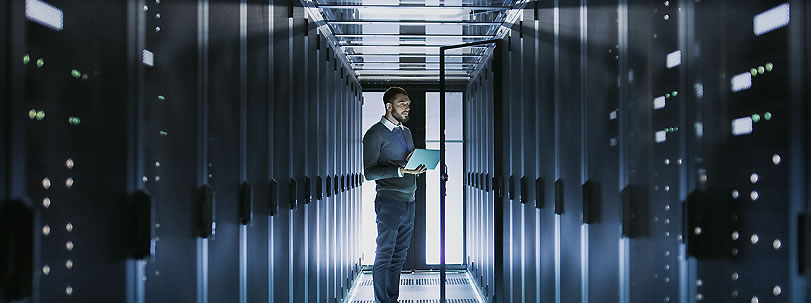Blockchain brings a paradigm shift to the trust gap

Human nature is such that we operate on the premise that our counterparty cannot be trusted. We therefore carry the burden of verifying every aspect of our lives; checking fake identities, misleading representations, unreliable record of ownership, to name but a few. Trust is delicate; it is hard to build and easy to lose. We are therefore forced by this state of affairs to rely on expensive, cumbersome and often time-consuming intermediaries to verify data for us.
Without a solid foundation of trust between humans, even the simplest transactions become burdensome. Trust enable people to transact among them and thus create wealth. Where we cannot systematically manufacture or provide evidence of trust, we source the trust from our gut in order to continue to cooperate and transact. This explains how in everyday life we manage to make routine transactions with an acceptable degree of trust. Yet, many times, trust has failed through wrongdoing, scandal, or sheer ineffectiveness.
Trust remains the fundamental raw material of commerce. Where there is no trust, we manufacture trust to be able to transact. We have recourse to intermediaries who attempt to bridge the trust gap. From the dawn of human civilisation, we live in a dangerous world and humans had to collaborate to survive and as such humans are exceptionally cooperative. A necessary corollary of cooperation is control. As such, people have found it necessary to maintain records. But the record keeper must be trusted so that the records are not tampered with. We may not notice it, but the trust business is huge.
The impact of disruptive technologies has created massive business opportunities and new business models for trust businesses. The ongoing maturing of the digital economy has resulted in more data, faster interactions, greater connectivity and increased automation. Even with an increasing technology acceleration, the very basis of how we are organised and operate remains bulky as ever. We face challenges working with each other at digital scale. We face a unique opportunity to rethink how we engage with each other because the notion of trust is paramount in the digital age. Why? Because, our guts struggle with increased distrust for digital data even if we relist in a sea of digital data about anything and everything. This distrust is twofold: (a) with the advent of Internet of Things, we are now increasingly transacting with devices and apps which further widens the trust gap, and (b) the manipulation of digital records can be done in large amounts instantly, making digital data untrustworthy at the outset.
In an era where the trust gap is exponentially expanding and the fear of seeing our trust being misplaced, more trust needs to be manufactured to restore the trust balance. Blockchain makes a significant promise to address this gap inasmuch as it represents THE trust machine which resets the playing field for all members of the human species. It represents an epic shift as any tampered data can be easily identified. It is said to be the single source of truth as it makes data immutable. Consequently, it creates an abundance of trust. This is a major reset from our past. This change in how we trust will change the experience of being a human being; high levels of trusts will require low levels of intermediaries. Trust will be inherent and would not need to be manufactured. This becomes particularly important as with the dazzling progress of technology, artificial intelligence and new marketplaces on the horizon, coupled with augmented and virtual realities, our counterparties are not only human beings but smart devices, which a priori are massively untrusted.
In addition, the collaborative economy emerged to eliminate the middleman and to instantly create trust between strangers. The collaborative economy rests on the principles of collaborative consumption and sharing.
To conclude, every paradigm came in history at a time when humanity was confronted with a gap that needed to be bridged. And paradigm shifts have historically transformed human society by changing something fundamentally important ever. Blockchain brings a paradigm shift to the trust gap, which through history has been growing. People still cheat each other as they have been cheating each other for centuries. In the digital economy, the traditional cues for assessing trust are not available. The digital economy can loosely be termed as a world of chaos with both opportunities and threats. For the digital economy to continue to grow and thrive, users must continue to trust that their personal information will be secure and their privacy protected. And Blockchain restores this trust in the current state of shattered trust in which we transact today, by creating an intermediary-less setup where every unfamiliar counterparty can transact; those who are looking for trust and those who are looking to be trusted can rely on each other. We have a type of trust that can grease the wheels of business in the age of distributed networks and collaborative marketplaces; a type of trust that transforms society.
Published in Mauritius Business Magazine on 11 March 2020.

